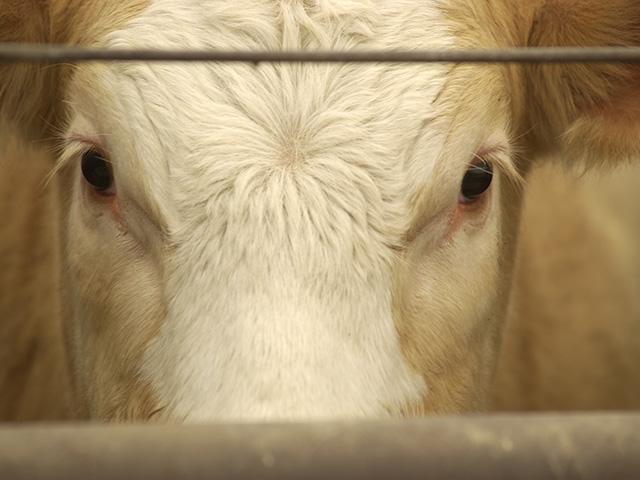SEC Alleges Beef Co. is Ponzi Scheme
SEC Alleges Texas Cattle Investment is $191 Million Ponzi Scheme About to Implode
OMAHA (DTN) -- The Securities and Exchange Commission has frozen the assets of a Texas-based cattle marketing company, alleging the company fraudulently sold securities in "cattle contracts" as a $191 million Ponzi scheme that would "soon implode."
The company, Agridime LLC out of Fort Worth, Texas, is now under a court-ordered receivership under the U.S. District Court for the Northern District of Texas with Agridime's assets frozen after the SEC obtained a temporary restraining order against Agridime and its owners.
Agridime has raised $191 million since 2021 from more than 2,100 investors in at least 15 states, the SEC stated. The SEC stated Agridime, however, had less than $1.5 million in cash as of Sept. 30, and insufficient operating revenues. The SEC stated, "It appears that Agridime's Ponzi scheme will soon implode unless it continues to raise money from new investor-victims."
Agridime sells investment contracts related to the buying and selling of cattle, dubbed as "cattle contracts." The SEC complaint stated Agridime promised investors guaranteed annual returns ranging from 15% to 20% -- going as high as 32% -- and marketed cattle contracts on Agridime's website as a way for investors to passively profit from owning cattle "without having to do all of the work."
Agridime is owned by Jed Wood, 62, of Fort Worth, Texas, and Josh Link, 30, of Gilbert, Arizona. Both are named as defendants in the case. Wood and Link founded Agridime in 2017.
A customer service representative from Agridime told DTN the company does not have a comment at this time about the SEC's action.
A court hearing on Dec. 20 will respond to SEC's motions for preliminary injunctions against Agridime and forcing the company and its executives to give up any profits related to the Ponzi scheme.
P[L1] D[0x0] M[300x250] OOP[F] ADUNIT[] T[]
The SEC alleges Agridime used at least $58 million in investor funds since December 2022 to pay returns on existing investors instead of buying, feeding and marketing cattle. Agridime was not buying enough cattle to fulfill its contracts or obligations, the SEC stated, "and as a result, Agridime has only been able to return principal and pay promised returns by making Ponzi payments."
The SEC laid out Agridime's cattle contracts, investments and liabilities, stating that as of Sept. 5, 2023, Agridime had cattle contracts requiring it to pay investors more than $123 million in principal and another $24 million in guaranteed profits. That was despite only having potentially $1.5 million in the checking account.
The states of Arizona and North Dakota earlier this year had each filed cease-and-desist orders against Agridime, but the company continued to sell its cattle contracts in those states, including $9 million in contracts in North Dakota and $1 million in Arizona. An Agridime salesman admitted under oath in October that he is still selling cattle contracts in Arizona, the SEC stated.
According to the SEC, Agridime typically solicited investors on its website, as well as social media. The SEC alleges the contracts operated like unregistered securities, which is why the SEC took the lead in bringing a case against the company.
On its website, Agridime states the company "is an online cattle and agricultural products brokerage company that utilizes a proprietary trading platform to connect buyers and sellers." The website added, "We are registered with the USDA and bonded in accordance with the P&S (Packers and Stockyards) Act."
The SEC stated that gave the appearance to investors that the cattle contract investments were protected by USDA bonding and insurance. Yet, the SEC maintains new investment dollars went to pay promised returns to earlier investors, "thus concealing the Ponzi scheme."
The U.S. Department of Agriculture declined to respond to questions about whether USDA played a role in the investigation. USDA also did not respond to whether the Packers and Stockyards Act or Dealer Trust Act would play any role for investors who would be at risk with Agridime. The press office for USDA replied that DTN should reach out to the SEC for any additional information on this case.
Agridime's consumer website markets direct sale meat products, as well as other food items, similar to other online retailers. The company also solicits cattle producers. Agridime's website offers to work on buying or selling feeder cattle and finished cattle. "We can help with backgrounding, spot contracts, and hedging your calves as finished cattle," Agridime states. The company suggests producers fill out a form or call to get a bid on finishing cattle or selling finished cattle.
Under its cattle contracts, Agridime sold cattle to an investor for $2,000 per calf for calves typically marketed at around 500 pounds. Each calf would then go to a feedyard partnering with Agridime until the cattle reached fed-cattle weights. Agridime maintained they would market the cattle or the meat in a way that generated $3,000 in revenue. The investor would then get a profit somewhere between $300 to $400 per head.
Investors who bought 50 head of cattle or more were guaranteed higher rates of return, the SEC stated.
Since August of this year, Agridime has started marketing a new cattle contract that solicited investments for bred cows at $4,500 per head with the cows remaining on ranches operated by Agridime until they calved. The investor, however, never takes control of the cattle.
The company also paid another $11 million for 10% commissions to salespeople, including the owners, who also solicited investments in the company's cattle contracts. Agridime does not disclose the commissions to its investors. Wood and Link, along with their spouses, made $1.3 million in commissions. A single salesperson in North Dakota received $5.6 million in commissions.
Also see, "Dealer Trust Act Faces First Test Case,"
Chris Clayton can be reached at Chris.Clayton@dtn.com
Follow him on X, formerly known as Twitter, @ChrisClaytonDTN
(c) Copyright 2023 DTN, LLC. All rights reserved.




